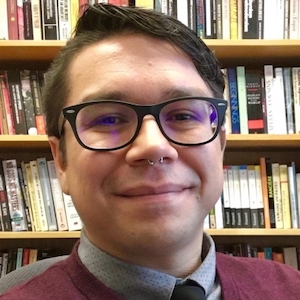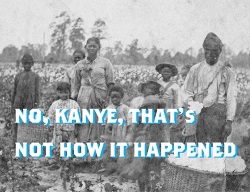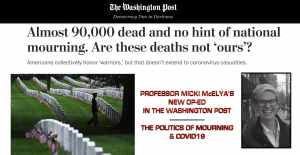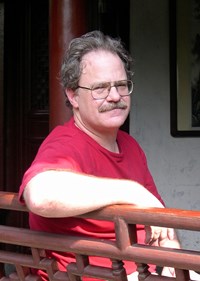 UConn History Professor Brendan Kane’s work to make learning early modern Irish accessible has been featured in RTÉ Brainstorm, a segment of the Irish public press that highlights academic research that contributes to broader discussions about Ireland and Irish culture. Instead of making a New Year’s Resolution to “run a marathon” or “master sourdough,” the article encourages readers to learn Irish as a part of their “new year, new me” goals. Brendan Kane’s collaborative initiative, the Léamh project, offers tools to make reading early modern Irish fun, innovative, and equitable. For more, check out “Learn a new language for 2022, how about Early Modern Irish?” on the RTÉ website. Congratulations to Prof. Kane!
UConn History Professor Brendan Kane’s work to make learning early modern Irish accessible has been featured in RTÉ Brainstorm, a segment of the Irish public press that highlights academic research that contributes to broader discussions about Ireland and Irish culture. Instead of making a New Year’s Resolution to “run a marathon” or “master sourdough,” the article encourages readers to learn Irish as a part of their “new year, new me” goals. Brendan Kane’s collaborative initiative, the Léamh project, offers tools to make reading early modern Irish fun, innovative, and equitable. For more, check out “Learn a new language for 2022, how about Early Modern Irish?” on the RTÉ website. Congratulations to Prof. Kane!
press
Alum Jorell Meléndez-Badillo Interviewed by The Abusable Past
 Recent UConn History PhD graduate, Jorell Meléndez-Badillo, details the intricacies of the labor movement in Puerto Rico alongside questions of race, gender, and knowledge production in an interview with the online collective, The Abusable Past.
Recent UConn History PhD graduate, Jorell Meléndez-Badillo, details the intricacies of the labor movement in Puerto Rico alongside questions of race, gender, and knowledge production in an interview with the online collective, The Abusable Past.
The interview is based on his his first book, The Lettered Barriada: Workers, Archival Power, and the Politics of Knowledge in Puerto Rico (2021), which chronicles how a group of self-educated workers theorized liberation in the wake of U.S. occupation and amidst the changing conditions and terms of exploitation. This interview is an insightful foray into the cultural landscape of labor politics in Puerto Rico. Congratulations on a groundbreaking book and fantastic interview!
Interview is here:
Prof. McElya Contributes to WashPo on Mourning & COVID-19
Professor Micki McElya‘s latest op-ed adds a powerful voice to the pages of the Washington Post. Building off of her recently published book, The Politics of Mourning: Death and Honor in Arlington National Cemetery, which was a finalist for the 2017 Pulitzer Prize for General Nonfiction, McElya asks why there is no collective mourning for those Americans lost to Covid-19. She answers, “The reason is as simple as it is terrible: We share no understanding of these staggering losses as ours, as belonging to all Americans, as national.” McElya argues that a sense “national kinship” is lost as the pandemic’s victims are “disproportionately urban, people of color, immigrants, the undocumented, the incarcerated, the elderly in nursing homes and state care facilities, the poor, the uninsured, the chronically ill, service workers and delivery people.”
To read more of this timely op-ed, please click here. Or, find it in this Sunday’s print edition!
Professor Peter Zarrow Contributes to History News Network
Professor Peter Zarrow, who specializes in Modern China, contributed an article to the George Washington University’s History News Network titled “How Chinese History Restarted 100 Years Ago.” Centered on the May Fourth movement, Zarrow argues that the movement inspired political action, particularly among the youth, and “revived Chinese politics, which had been left moribund in the wake of the 1911 Revolution.” To read the article, and learn of how “the Tiananmen Square democracy movement” is remembered today, please click here.
The Department also would like to note that Professor Zarrow is serving as a Visiting Professor at L’École des hautes études en sciences sociales (School for Advanced Study in the Social Sciences) from May-June 2019.
Professor Manisha Sinha Contributes to TIME Magazine
Along with six other historians, Professor Manisha Sinha was selected by TIME Magazine to name “the biggest political scandal in American history.” Her pick? The Crédit Mobilier Scandal of 1872. To find out why, and to read the full list, click here.
Micki McElya’s Clinging to Mammy Quoted in The Nation
Professor Micki McElya‘s book Clinging to Mammy: The Faithful Slave in Twentieth-Century America, published in 2007 with Harvard University Press, was quoted in a recent article by Kali Halloway. Titled “‘Loyal Slave’ Monuments Tell a Racist Lie About American History,” Halloway specifically references McElya’s research on the largest-black newspaper in DC in the 1920s.
Manisha Sinha’s The Slave Cause Quoted in NYT
Professor Manisha Sinha‘s The Slave’s Cause: A History of Abolition, recipient of the 2017 Frederick Douglass Prize, was quoted in Dr. Tiya Miles’ recent NYT op-ed, “The Black Gun Owner Next Door.” Miles draws upon Professor Sinha’s utilization of “shock troops” to describe the activists involved in fugitive slave rescues.
PhD Student Lauren Stauffer Contributes to Made By History
Utilizing research from her dissertation, third-year PhD student Lauren Stauffer contributed an op-ed, titled “How President Trump Shattered the Bond Between Republicans and NATO,” to the Washington Post’s Made by History column. The article compares the Republican Party’s longstanding support for NATO, particularly under President Ronald Reagan, to the current relationship between the alliance and President Trump.
“No, Kanye, That’s Not How It Happened.”
In the latest issue, UConn Magazine talks to Professor Manisha Sinha about history lessons that tell the truth about slavery in the U.S. and more.
UConn Magazine talks to Professor Manisha Sinha about history lessons that tell the truth about slavery in the U.S. and more.
National Humanities Alliance Article on “The Encounter Series”
The National Humanities Alliance showcases the range of work being done by higher education institutions through articles on their site “Humanities for All.” Recently they included an article on “The Encounter Series,” a collaboration between the UConn Humanities Institute and the Hartford Public Library, the Wadsworth Atheneum, and the Amistad Center for Art & Culture, coordinated by Brendan Kane:
“The Encounters Series grew out of a desire to build connections between a land-grant university and its state, Brendan Kane of UConn explains. “We wanted to move beyond the kind of typical mode of interaction, which is the lecture or the panel,” Kane says. “I love lectures and panels, but we wanted to do things that were more active. We wanted to get UConn faculty more out into the world, making a research university that’s state-supported more accessible to the people in the communities that we serve.” With this in mind, Kane began exploring models of conflict resolution and public conversations.”
To access the full article, visit: https://humanitiesforall.org/projects/encounters

